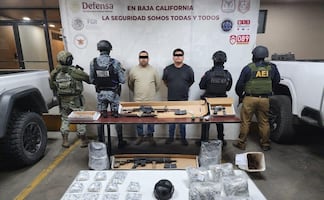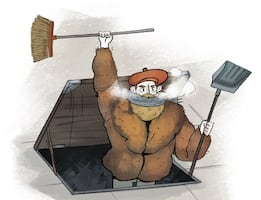South America
’s most successful government in terms of economic growth and social inclusion has been ousted in a hybrid coup , and it is time to take a closer look to the actors behind the fall of President Evo Morales and their motivations, as well as the mistakes committed by the Bolivian government in the last 13 years.
While the situation in the Andean country is volatile and the resistance against the self-proclaimed President Jeanine Áñez is growing, it is clear that the usual suspects behind coups in Latin America and the Caribbean —the United States and its regional allies, the Organization of American States ( OAS ), local armed forces, right-wing opposition, corporate leaders, and Christian churches,—colluded to take advantage of the October 20 elections .
In this context, former President Carlos Meza resulted the most suitable opposition candidate, due to his moderate credentials and his resignation in 2005 after the “ gas referendum ,” during which the majority of the population voted for the nationalization of hydrocarbons promoted by Morales as peasant trade unionist, before succeeding Meza (and the interim head of state Eduardo Rodríguez ) in the Palacio Quemado of La Paz .
A former Congress leader, Meza , who unsuccessfully negotiated with Chile access to the Pacific Ocean in the International Court of Justice , worked in the last years as an expert for the Inter-American Dialogue , a Washington-based think tank funded by the United States Agency for International Development ( USAID ) and multinational corporations active in the region.
Department of State cables
published by WikiLeaks highlighted that Meza regularly corresponded with U.S. officials in their efforts to destabilize Morales , who committed a serious blunder after the vote count was interrupted requesting OAS a “ binding audit ,” which the organization used to demand new elections.
In search of his fourth reelection —despite the fact that the majority voted against this goal in the 2016 referendum organized by his own government— Morales won by more than 600,000 votes according to official results, giving him just above the 10% margin needed to defeat Meza in the first round.
Contrary to the OAS position, experts from the U.S.-based Center for Economic and Policy Research found no evidence of irregularities or fraud , stressing that the OAS preliminary report on the process “raise disturbing questions about the organization’s commitment to impartial, professional, electoral observation.”
For this moment, however, Meza was replaced as the main opposition figure by the far right-wing mobs led by Luis Fernando Camacho , head of the Civic Committee of Santa Cruz .
As the journalists Max Blumenthal and Ben Norton have exposed, Camacho is a millionaire named in the Panama Papers and hails from a family who profited from Bolivia’s natural gas reserves (the second in South America after Venezuela , with 1.5 trillion cubic meters) and lost part of its wealth when Morales fulfilled the 2005 referendum and nationalized the resources, in order to fund social programs.
Racist militants
Previously, Camacho was vice president of the Santa Cruz Youth Union , described by the U.S. embassy in La Paz as “ racist ” in 2008, noting that its members “have frequently attacked pro- MAS [ Morales’ Movement Towards Socialism party] government people and installations.”
One leader of the separatist movement in Santa Cruz province and ideologue of Camacho is the landowner Branko Marinkovic , who was a militant of the Franco-inspired Bolivian Socialist Falange , a fascist group that provided safe haven to Nazi war criminal Klaus Barbie during the Cold War ; Barbie was later employed by the CIA through its Operation Condor to help exterminate dissidents in Latin America .
Various sources, such as the U.S. private intelligence firm Stratford , consider that Marinkovic’s family was part of the Nazi puppet Ustashe regime in Croatia before they migrated to Bolivia .
Today, Marinkovic is a fervent supporter of Brazilian President Jair Bolsonaro and the Venezuelan opposition leader Juan Guaidó . He currently lives in Brazil , after he was related to the 2009 plot to kill Morales.
If Marinovic and Camacho’s racism surprises the average reader, it is worth noting that is common in Bolivian society . The hatred professed by the white minority towards the first indigenous president in the country’s history is also reflected by Camacho's remarks after storming the abandoned Palacio Quemado last Sunday, promising that “ Pachamama [ Andean Mother Earth spirit ] will never return to this palace . Bolivia belongs to Christ .”
In the same vein, Áñez tweeted in 2012 “I dream of a Bolivia that is free of satanic indigenous rituals . The city is not for indigenous people, they should go to the Altiplano [ Highlands ] or the Chaco.”
The former deputy speaker of the Senate is also the aunt of a cocaine trafficker who a couple of years ago was busted in Brazil smuggling by plane 400 kilos of cocaine from Bolivia ; on Wednesday, Áñez declared that she “feels very sorry for the Mexicans ,” because “they decided to get into something we want to get out of,” alluding to “ socialist ” President Andrés Manuel López Obrador , who recognized Morales’ victory and granted asylum to him this week.

The Radio Education Network of Bolivia leaked 16 audios last week involving opposition leaders who were calling for a coup, including Manfred Reyes Villa , a former prefect of Cochabamba who was accused of corruption and is currently living in the U.S.; also mentioned are the U.S. senators Marco Rubio , Bob Menendez , and Ted Cruz .
Media outlets in Venezuela have underscored that a plot to overthrow Morales was developed by the former Bolivian presidents Gonzalo Sánchez de Lozada ( Meza was his vice president ), and Jorge Quiroga ; the U.S. embassy officials Mariane Scott and Rolf A. Olson , as well as Camacho , Reyes Villa , and Jaime Alarcón Daza (P resident of the La Paz Civic Committee ).
They met with officials from the embassies of Argentina , Brazil , Colombia , Chile , Ecuador , Paraguay , Spain , and the United Kingdom (the UK is the first European nation that has recognized the Áñez regime), in La Paz, requesting their intervention leading the criticism over the elections, in order to give credibility to the plan.
For its part, Brazilian media reported that Eduardo Bolsonaro , son of Brazil’s president and chair of the International Affairs committee in that country’s congress, held a hearing with Camacho in October to discuss “ the integration of Bolivia ” in the Mercosur bloc .
Other key actors in the plan were the general Williams Kalimán Romero , head of the Bolivian armed forces who served as military attaché in Washington , and general Vladimir Calderón Mariscal , police commander and former head of the police exchange program with the U.S.
In geostrategic terms, landlocked Bolivia , a bridge between the Andean range , the Amazon , and the northern regions of Chile , Paraguay , and Argentina , may have between 50% and 70% of the world’s known lithium reserves .
The mineral lithium is used in mobile phones, the aerospace, and nuclear industries, in power tools and electric cars; the more than doubling of the lithium carbonate price between 2010 and 2017 attracted the attention of Morales’ government , which last year secured a USD $1.3 billion investment from Germany’s ACI Systems to create a lithium battery industry that would generate a billion dollars a year.
Morales
’ ambitious economic programs, which allowed him to reduce poverty and unemployment, increasing gross domestic product from USD $9 billion to USD $40 billion , were often criticized by far-left observers and environmental activists.
They point out that Morales deepened the extractivist model and transformed a peasant revolution into caudillismo ( autocratic government ). While the MAS turned its back to indigenous bases , La Paz promoted road development , hydroelectric plants , and oil exploitation in protected zones.
Morales
revealed in 2013 a project to expand the country’s agricultural frontier from 3.5 million hectares to 13 million hectares in ten years; up to 800,000 hectares of the Chiquitano forest bordering Brazil were burned last August, just a month after Morales announced a decree aimed at increasing beef production for export.
Civil society organizations called for the repeal of this decree, arguing that it helped cause the fires and violated environmental laws.
According to Uruguayan journalist and political theorist Raúl Zibechi , “the Latin American left cannot accept that a considerable part of the popular movement demanded the resignation of Morales’ government because it cannot see beyond the caudillos .”
Editing by Sofía Danis
More by Gabriel Moyssen
Noticias según tus intereses
[Publicidad]
[Publicidad]














